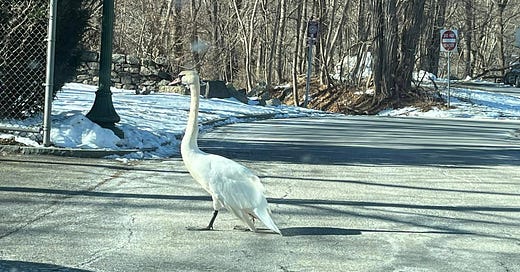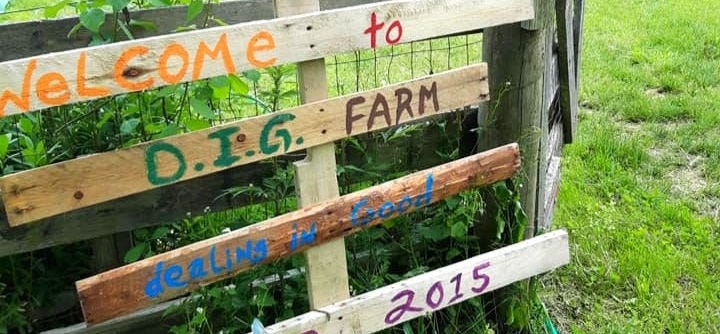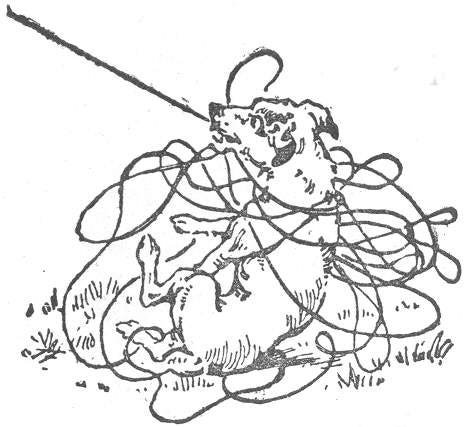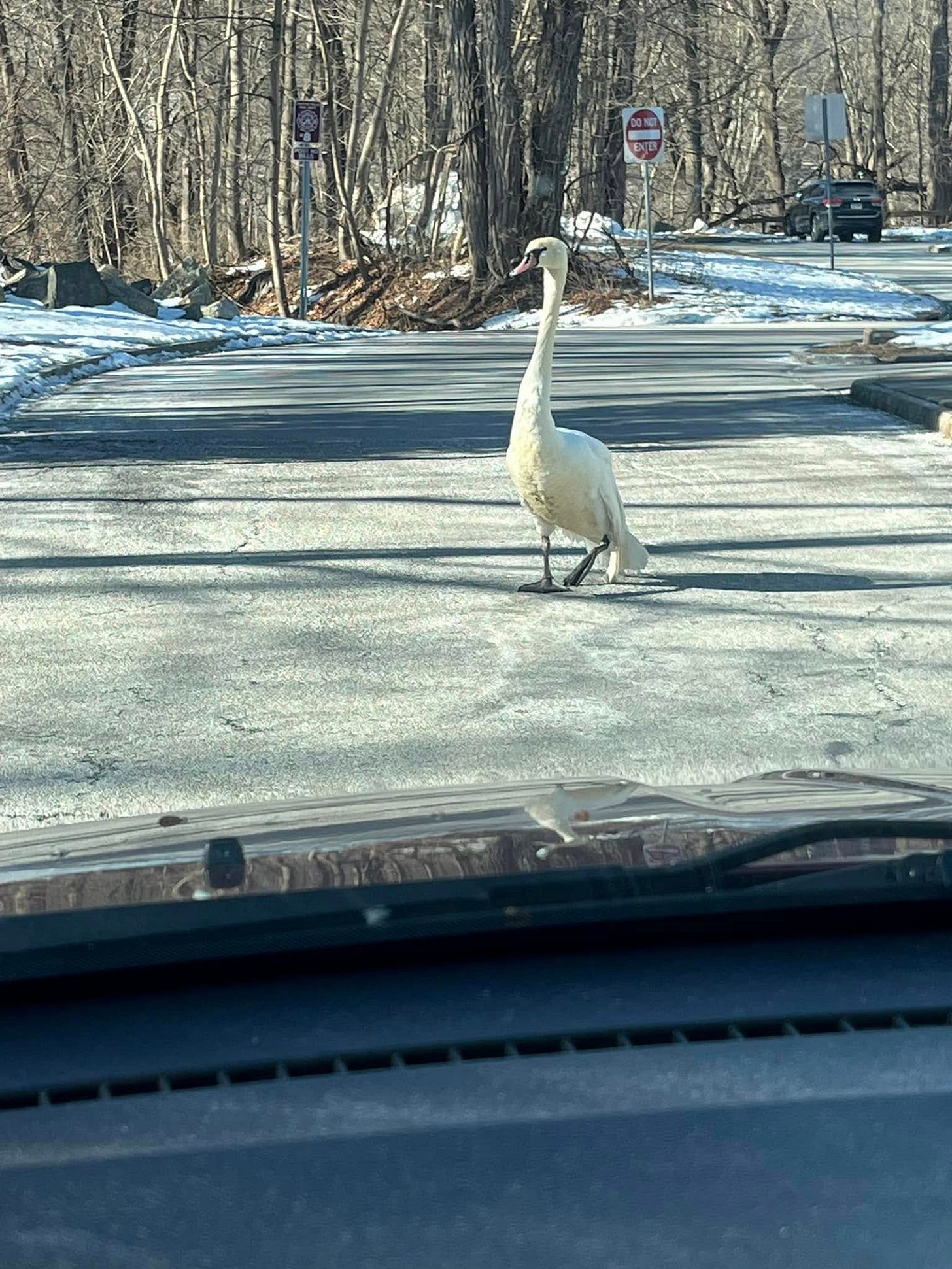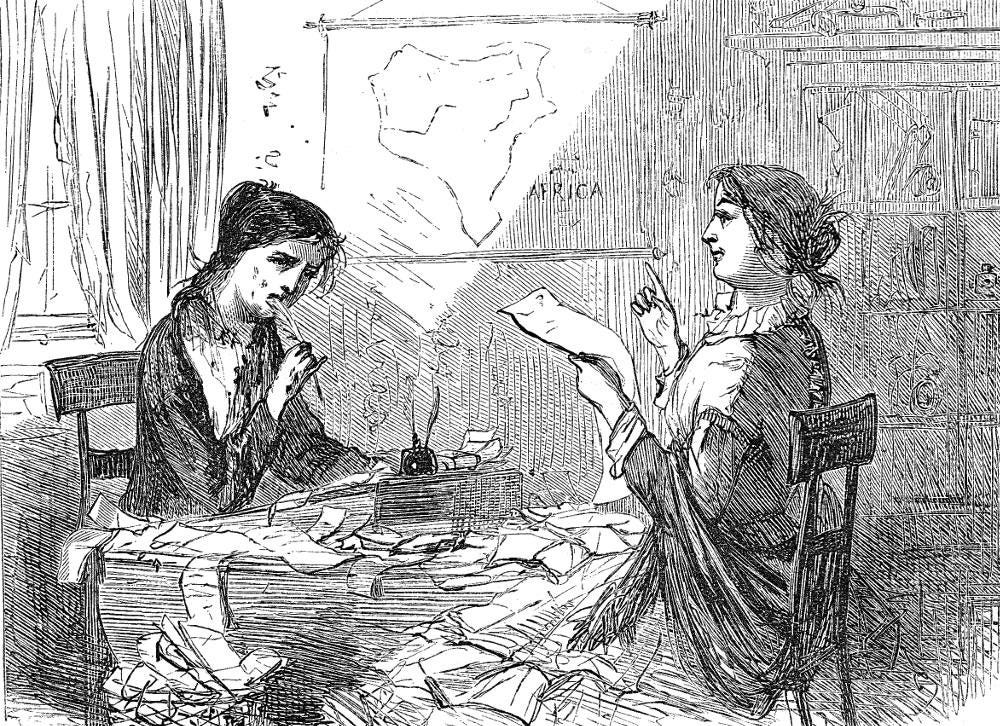Just a smattering of items from the past week.
RIP, Dick Button
The U.S. figure skater and commentator, Dick Button, died.
The Hollywood Reporter, 30 Jan 2025: Dick Button, Icon of Olympic Figure Skating, Dies at 95
Dick Button, the two-time Olympic champion who revolutionized figure skating by completing the first triple jump in competition, then spun TV ratings gold with his pithy, Emmy-winning commentary, died Thursday. He was 95.
Button died in North Salem, New York, his daughter, actress Emily Button, told The Washington Post.
Armed with an encyclopedic knowledge of his sport — as well as degrees from Harvard College and Harvard Law School — Button displayed a tart wit and passion that defined figure skating on network television for more than five decades, starting in 1960 on CBS with the Winter Olympics from what was then known as Squaw Valley, California.
He lived in my town, North Salem, and had a farm, Ice Pond Farm. About ten years ago, he let someone develop an organic farm there that works with educational groups, called DIG Farm, on the property.
Halston Media, August 2018: Organic Farmer ‘DIGs’ Growth on Ice Pond Farm
A Starbucks barista with a dream of having her own organic farm has found a home on Dick Button’s North Salem oasis.
Allison Turcan is about as loyal as it gets when it comes to Starbucks. She had worked her way up to store manager of the chain coffee shop in Mamaroneck, when she decided to take advantage of the company’s aptly-named “coffee break,” a program that allows employees who’ve been with the store for a decade to take a year of unpaid leave knowing there’s a job waiting on the other side.
….
Upon return to New York, she dropped down from full-time status at Starbucks to 20 hours a week and launched a nonprofit farm, D.I.G., or Dealing in Good, with a mission of “reconnecting communities to the natural good of the farm.” She didn’t have a set place to grow her food yet, but she brought her program into schools anyway.
While Turcan was just finding her footing in farming, six years prior North Salem resident and two-time Olympic champion Dick Button had laid the groundwork that would eventually make Turcan’s dream a reality.
Though he’s a world-famous ice skater, hence naming his 50-acre lot in North Salem “Ice Pond Farm,” locally, Button is known for his garden. In 1997, when he opened it to the public for a viewing, the New York Times called it a “veritable explosion of color” with a design where “eclecticism reigns.”
He’s since stopped showing his garden publicly, but did sign up with the Westchester Land Trust to keep 1.5 acres of his land in agriculture production.
Okay, we all know that was for the tax break, but that’s okay. They really did get local use of the farm — in particular, the 4-H club my kids were in (which kept re-naming itself over the years: North Salem Farm Friends, HAY U, Northern Westchester 4-H, etc.) got use of the farm for their club projects and meetings. In particular, they worked with Seeds of Change.
Many other groups got to use DIG Farms, located at Ice Pond Farm, such as Girl Scouts and Boy Scouts. I hope the estate lets them continue.
Our History
Since our inception in 2015 we have blessed to call Ice Pond Farm in beautiful North Salem, NY home. We have hosted thousands of people including volunteers, youth groups, corporate groups, special needs organizations and the community at large on to the farm to learn about regenerative agriculture, what it takes to grow healthy food, creative ways to use and preserve the garden bounty and all about wild plants, herbs and mycology.
This season we have formalized our focus areas into 4 initiatives and an amazing community partnership for our children's programming.
Our Initiatives:
The Westchester Local Food Project invites the community to:
volunteer in one of our community gardens to grow food for the community in need
volunteer in one of our kitchens to prepare meals rescued from our fellow local farmers that we donate back to the community in need
attend classes that offer the opportunity to learn cooking with and preserving the harvest -supports school gardens during the summer when they would normally be dormant
support our local farming community by selling their produce at the farmers markets we attend to bring in extra revenue for them
The Access Nature Project brings the benefits of Nature to underserved communities by:
creating engaging programs on the farm and at other outdoor locations
offering training to organizations to support them in getting their clients out into nature on a regular basis
The Wild Roots Project inspires connection to nature through foraging, herbalism and mycology by:
offering educational classes and hands-on learning about wild foods and medicinal plants, wild art and local ecology
hosting “pop up’ wild plant harvesting opportunities to participate and learn how to sustainably harvest wild plants for processing into useful products
hosting community gatherings that incorporate wild plants, herbs and mushrooms
The Seeds of Change Project is garden and nature-based programming for incarcerated women and women recently returning to society through:
trauma based therapy on the farm and in Nature
hands on learning in the garden and kitchen -
developing entrepreneurial opportunities around local food and farmers markets -
collaborating across systems to build community and access to local food
Do Not Mess With Swans
Last week, I mentioned Three Men in a Boat (to say nothing of the dog), by Jerome K. Jerome.
This is what he had to say about swans: (Chapter 14)
Harris had a sad expression on him, so we noticed, when we got into the boat. He gave you the idea of a man who had been through trouble. We asked him if anything had happened, and he said—
“Swans!”
It seemed we had moored close to a swan’s nest, and, soon after George and I had gone, the female swan came back, and kicked up a row about it. Harris had chivied her off, and she had gone away, and fetched up her old man. Harris said he had had quite a fight with these two swans; but courage and skill had prevailed in the end, and he had defeated them.
Half-an-hour afterwards they returned with eighteen other swans! It must have been a fearful battle, so far as we could understand Harris’s account of it. The swans had tried to drag him and Montmorency out of the boat and drown them; and he had defended himself like a hero for four hours, and had killed the lot, and they had all paddled away to die.
“How many swans did you say there were?” asked George.
“Thirty-two,” replied Harris, sleepily.
“You said eighteen just now,” said George.
“No, I didn’t,” grunted Harris; “I said twelve. Think I can’t count?”
What were the real facts about these swans we never found out. We questioned Harris on the subject in the morning, and he said, “What swans?” and seemed to think that George and I had been dreaming.
Montmorency is the dog.
George, Harris, and Jerome are the three men.
Anyway, from that book, and the sci-fi comedy, To Say Nothing of the Dog, I have learned to give swans a wide berth.
So when a swan decided to swan in front of my minivan last week:
I decided to just sit there until it swanned away. Swan away, it did.
I had no idea why the swan was walking around a Metro-North station parking lot. We have several bodies of water nearby - well, they would be bodies of water if things weren’t freezing - perhaps it was seeking food.
While driving around yesterday, I noticed the local lakes were chock-full of swans, probably the only large non-migratory waterfowl around here. Mute swans (the type I’m kvetching about) are native to Europe, after all.
Blast the idiots who brought them to America.
Mrs. Jellyby and Her Horde
Many people are unaware of this fabulous character from Charles Dickens’s masterpiece Bleak House, and this will not do.
Some prior times I’ve referred to her:
July 2021, LiveJournal, Constrained choices:
The easiest sort of displacement in literature I can think of is Mrs. Jellyby in Bleak House. She wasted her time on foreign "charities" where she had absolutely no effect other than potentially annoying her supposed beneficiaries. But she totally left off responsibility for her own children and spouse. But one made her feel special, and the other would be merely doing what many other people did.
But in general, things would be better if we could recognize what we did have control over, and what we did not.
I was wrong about Mrs. Jellyby’s effect. I will come to that in a moment.
Movember 2023 wrap-up, quoting Jim Forest - Mrs. Jellyby and the Domination of Causes, essay by Jim Forest
While few in the peace movement so radically neglect those in their care, unfortunately I cannot think of Mrs. Jellyby merely as a gross caricature. When my wife and I talked about her recently, we could think of several people, of both sexes, resembling her in many details: people with a certain legitimate concerns and noble goals who engage themselves so fully that their fixation wrecks havoc in the lives of those around them, driving many people they intended to influence, even their own sons and daughters, in the opposite direction.
Here is a nutshell description of Mrs. Jellyby, and some related characters, in Bleak House, which was published in 1852.
Mrs. Jellyby is one of a network of charitable do-gooders, under the heading of Christian missionary work bother one of the main characters, Mr. Jarndyce. She and the others were a thinly veiled critique of various members of the charitable societies who had bothered Dickens once he was rich and famous.
Mrs. Jellyby focused on an African tribe, and her mission is described thusly, from Chapter 4, “Telescopic Philanthropy”:
We were to pass the night, Mr. Kenge told us when we arrived in his room, at Mrs. Jellyby’s; and then he turned to me and said he took it for granted I knew who Mrs. Jellyby was.
“I really don’t, sir,” I returned. “Perhaps Mr. Carstone—or Miss Clare—”
But no, they knew nothing whatever about Mrs. Jellyby. “In-deed! Mrs. Jellyby,” said Mr. Kenge, standing with his back to the fire and casting his eyes over the dusty hearth-rug as if it were Mrs. Jellyby’s biography, “is a lady of very remarkable strength of character who devotes herself entirely to the public. She has devoted herself to an extensive variety of public subjects at various times and is at present (until something else attracts her) devoted to the subject of Africa, with a view to the general cultivation of the coffee berry—AND the natives—and the happy settlement, on the banks of the African rivers, of our superabundant home population. Mr. Jarndyce, who is desirous to aid any work that is considered likely to be a good work and who is much sought after by philanthropists, has, I believe, a very high opinion of Mrs. Jellyby.”
Note, the concept was they would take some of the “superabundant home population” — aka that “excess population” Scrooge notes in “A Christmas Carol” — ship them over to Africa, and then have those poor people work in African missions.
When the characters end up at Mrs. Jellyby’s house, it is in complete disarray as Mrs. Jellyby takes no responsibility for running the household, but focuses on whatever the campaign of the hour is. This is what Mrs. Jellyby has to say:
“You find me, my dears,” said Mrs. Jellyby, snuffing the two great office candles in tin candlesticks, which made the room taste strongly of hot tallow (the fire had gone out, and there was nothing in the grate but ashes, a bundle of wood, and a poker), “you find me, my dears, as usual, very busy; but that you will excuse. The African project at present employs my whole time. It involves me in correspondence with public bodies and with private individuals anxious for the welfare of their species all over the country. I am happy to say it is advancing. We hope by this time next year to have from a hundred and fifty to two hundred healthy families cultivating coffee and educating the natives of Borrioboola-Gha, on the left bank of the Niger.”
That is, she wants to ship off 50 — 200 poor families from England to Africa, supposedly to make their living by growing coffee (and Mrs. Jellyby herself consumes a great deal of coffee to power her letter-writing campaigns). They are also supposed to evangelize the people already living there to Christianity.
Other “charitable” people appear, whether they are involved in the Africa scheme or not. Similarly, they abuse the responsibilities they have to their families and neighbors to supposedly do good to a larger sphere. In general, they engender resentment in their children and sometimes despair in their spouses (though, in some cases, the spouses are on board and completely smug about it all.)
Dickens probably had a specific person in mind in Mrs. Jellyby, but even if he didn’t, he tended to exaggerate for effect. Mr. Jellyby worked to support the family, but the physical situation was untenable. Mr. Jellyby showed obvious depression and despair when he was at home. Their oldest child, Caddy, didn’t know how to run the household in place of her mother - how could she? Part of the plot is the main character, Esther Summerson, taking Caddy under her wing to teach her how to run a household.
But what of Mrs. Jellyby and the poor missionary English people she shipped off to Africa? This is what we get as a concluding paragraph on her, her daughter, and her grandchild:
Caddy Jellyby passed her very last holidays with us and was a dearer creature than ever, perpetually dancing in and out of the house with the children as if she had never given a dancing-lesson in her life. Caddy keeps her own little carriage now instead of hiring one, and lives full two miles further westward than Newman Street. She works very hard, her husband (an excellent one) being lame and able to do very little. Still, she is more than contented and does all she has to do with all her heart. Mr. Jellyby spends his evenings at her new house with his head against the wall as he used to do in her old one. I have heard that Mrs. Jellyby was understood to suffer great mortification from her daughter’s ignoble marriage and pursuits, but I hope she got over it in time. She has been disappointed in Borrioboola-Gha, which turned out a failure in consequence of the king of Borrioboola wanting to sell everybody—who survived the climate—for rum, but she has taken up with the rights of women to sit in Parliament, and Caddy tells me it is a mission involving more correspondence than the old one. I had almost forgotten Caddy’s poor little girl. She is not such a mite now, but she is deaf and dumb. I believe there never was a better mother than Caddy, who learns, in her scanty intervals of leisure, innumerable deaf and dumb arts to soften the affliction of her child.
The African king wanted to sell all the missionaries (all who survived the tropical diseases) into slavery for his personal benefit. After Mrs. Jellyby sighs, she moves on to women’s suffrage as her next cause, which wouldn’t be successful in the UK until well after her death. In the meantime, she has a disabled granddaughter she could have done much to help… but no, she has decided that it’s better to keep on writing letters.
She could have done more for her family in general.
For what it’s worth, Dickens shows women (and men) engaging in effective charity throughout Bleak House — after all, Esther Summerson helps Caddy beyond her own core duties and also attempts to help many destitute people she comes across throughout the book. Esther delivers charity with her own hands, knowing she is limited in the help she can give to poor women married to abusive itinerant working men, both of whom suffer from their infants dying soon after birth. Esther does what she can, treating the women with dignity. Esther can alleviate their suffering, at least for a time.
But that is not nearly as grand as the “telescopic philanthropy” that is completely futile, as Mrs. Jellyby does not understand anything whatsoever about the people in Africa, what they want or need.
Mrs. Jellyby could have been more effective by helping both her family and the poor who surrounded her in London, where she lived. What Esther Summerson was able to accomplish among different people directly contrasts with the futility of Mrs. Jellyby’s pile of messy letters.
If Mrs. Jellyby had ordered her responsibilities properly, by her capabilities and knowledge, she could have done so much more good.

